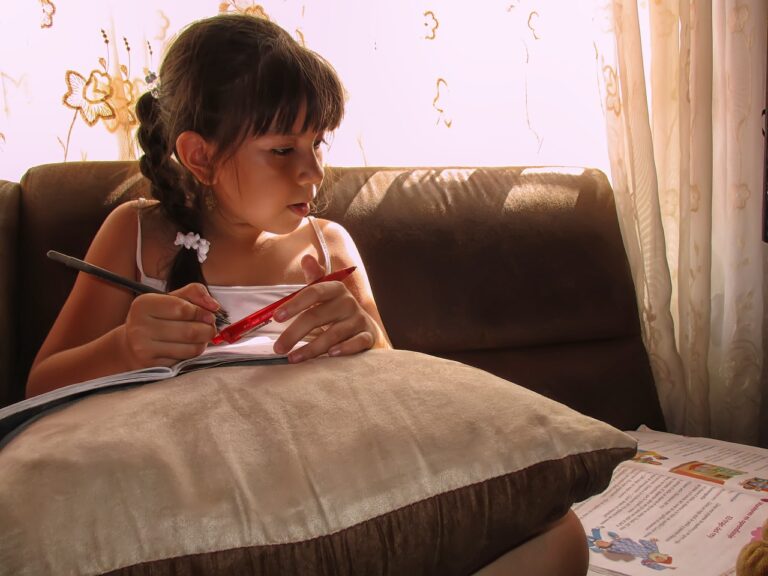1. Future with Going To
O futuro com going to é utilizado para expressar planos ou intenções, bem como previsões baseadas em evidências presentes.
Construção:
- Verbo to be (am/is/are) + going to + verbo base.
Formas:
| Afirmativa | Negativa | Interrogativa |
|---|---|---|
| I am going to travel. | I am not going to travel. | Am I going to travel? |
| You are going to travel. | You are not going to travel. | Are you going to travel? |
| He/She/It is going to travel. | He/She/It is not going to travel. | Is he/she/it going to travel? |
| We are going to travel. | We are not going to travel. | Are we going to travel? |
| They are going to travel. | They are not going to travel. | Are they going to travel? |
Exemplos:
- I am going to study for the test tomorrow.
(Eu vou estudar para a prova amanhã.) - She isn’t going to attend the meeting.
(Ela não vai participar da reunião.) - Are they going to visit their grandparents this weekend?
(Eles vão visitar os avós neste fim de semana?)
Palavras-chave (Signal Words):
Tomorrow, next week/month/year, soon, later, in a few minutes/hours/days
2. Future Continuous with Going To
O Future Continuous com going to descreve ações que estarão em andamento em um momento específico no futuro.
Construção:
- Verbo to be (am/is/are) + going to be + verbo no gerúndio (forma -ing).
Formas:
| Afirmativa | Negativa | Interrogativa |
|---|---|---|
| I am going to be working. | I am not going to be working. | Am I going to be working? |
| You are going to be working. | You are not going to be working. | Are you going to be working? |
| He/She/It is going to be working. | He/She/It is not going to be working. | Is he/she/it going to be working? |
| We are going to be working. | We are not going to be working. | Are we going to be working? |
| They are going to be working. | They are not going to be working. | Are they going to be working? |
Exemplos:
- I am going to be cooking dinner at 8 p.m.
(Eu estarei cozinhando o jantar às 8 da noite.) - He isn’t going to be studying at that time.
(Ele não estará estudando nesse horário.) - Are we going to be traveling during the holidays?
(Nós estaremos viajando durante as férias?)
Palavras-chave (Signal Words):
At this time tomorrow, at 8 p.m. next Monday, while
3. Simple Future with Will
O Simple Future com will é usado para previsões, promessas, decisões espontâneas ou fatos futuros inevitáveis.
Construção:
- Will + verbo base.
Formas:
| Afirmativa | Negativa | Interrogativa |
|---|---|---|
| I will travel. | I will not travel. | Will I travel? |
| You will travel. | You will not travel. | Will you travel? |
| He/She/It will travel. | He/She/It won’t travel. | Will he/she/it travel? |
| We will travel. | We will not travel. | Will we travel? |
| They will travel. | They will not travel. | Will they travel? |
Exemplos:
- I will help you with your homework.
(Eu ajudarei você com sua lição de casa.) - She won’t attend the party.
(Ela não irá à festa.) - Will they visit us next week?
(Eles nos visitarão na próxima semana?)
Palavras-chave (Signal Words):
Tomorrow, next week, someday, in the future
4. Future Continuous with Will
O Future Continuous com will descreve ações em andamento em um momento específico no futuro.
Construção:
- Will be + verbo no gerúndio (forma -ing).
Formas:
| Afirmativa | Negativa | Interrogativa |
|---|---|---|
| I will be working. | I will not be working. | Will I be working? |
| You will be working. | You will not be working. | Will you be working? |
| He/She/It will be working. | He/She/It won’t be working. | Will he/she/it be working? |
| We will be working. | We will not be working. | Will we be working? |
| They will be working. | They will not be working. | Will they be working? |
Exemplos:
- I will be studying at 10 p.m.
(Eu estarei estudando às 10 da noite.) - They won’t be working at that time.
(Eles não estarão trabalhando nesse horário.) - Will she be traveling during the holidays?
(Ela estará viajando durante as férias?)
Palavras-chave (Signal Words):
At this time tomorrow, at 8 p.m. next Monday
5. Future Perfect
O Future Perfect expressa ações que estarão completas antes de um momento específico no futuro.
Construção:
- Will have + particípio passado do verbo.
Formas:
| Afirmativa | Negativa | Interrogativa |
|---|---|---|
| I will have finished. | I will not have finished. | Will I have finished? |
| You will have finished. | You will not have finished. | Will you have finished? |
| He/She/It will have finished. | He/She/It won’t have finished. | Will he/she/it have finished? |
| We will have finished. | We will not have finished. | Will we have finished? |
| They will have finished. | They will not have finished. | Will they have finished? |
Exemplos:
- I will have completed the project by next week.
(Eu terei concluído o projeto até a próxima semana.) - He won’t have arrived by 6 p.m.
(Ele não terá chegado até às 18h.) - Will they have left before we get there?
(Eles terão saído antes de chegarmos lá?)
Palavras-chave (Signal Words):
By the time, by 2025, before
6. Future Perfect Continuous
O Future Perfect Continuous enfatiza a duração de uma ação até um momento no futuro.
Construção:
- Will have been + verbo no gerúndio (forma -ing).
Formas:
| Afirmativa | Negativa | Interrogativa |
|---|---|---|
| I will have been working. | I will not have been working. | Will I have been working? |
| You will have been working. | You will not have been working. | Will you have been working? |
| He/She/It will have been working. | He/She/It won’t have been working. | Will he/she/it have been working? |
| We will have been working. | We will not have been working. | Will we have been working? |
| They will have been working. | They will not have been working. | Will they have been working? |
Exemplos:
- I will have been studying for three hours by 9 p.m.
(Eu terei estado estudando por três horas até às 21h.) - She won’t have been traveling for long by then.
(Ela não terá estado viajando por muito tempo até lá.) - Will they have been working here for a year by next month?
(Eles terão estado trabalhando aqui por um ano até o próximo mês?)
Palavras-chave (Signal Words):
For, by the time, by next week
















